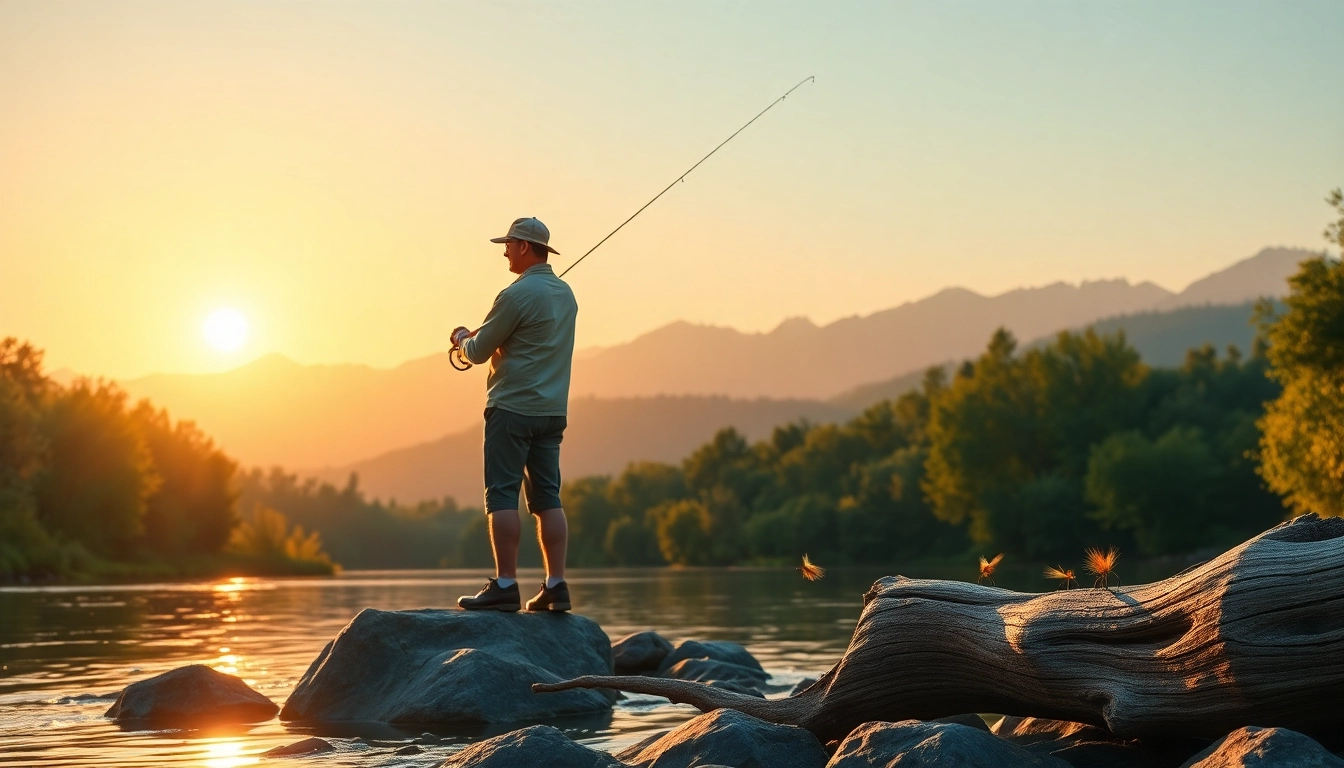
Understanding the Basics of Fly Fishing Lessons Near Me
If you’ve ever been interested in the art of fly fishing, you may be wondering about the best ways to dive into this rewarding pastime. Thankfully, there are fly fishing lessons near me that can help you get started. Whether you’re a complete novice or looking to refine your skills, understanding what to expect from your first lesson and where to find quality instruction is essential.
What to Expect from Your First Fly Fishing Lesson
Your first fly fishing lesson will likely focus on the foundational aspects of the sport. Expect to learn about:
- Equipment Basics: You will be introduced to the essential gear, including rods, reels, lines, and flies.
- Basic Casting Techniques: An instructor will guide you through the basic casting motion, which is fundamental to successful fly fishing.
- Safety Protocols: Lessons typically include safety measures, such as how to maneuver in water and avoid common hazards.
Most lessons will also contain a segment devoted to tying knots and understanding line characteristics, which are pivotal in fly fishing.
Essential Gear Needed for Fly Fishing
Before heading out for your lesson, it’s useful to know what gear will be introduced and needed:
- Fly Rod: Choose a rod that is suited to the type of fish you aim to catch.
- Fly Reel: A good reel helps manage your line effectively.
- Line and Leader: These are crucial for casting and catching fish.
- Flies: Various flies mimic insects and are a crucial part of your toolkit.
- Waders: These keep you dry and comfortable, allowing you access to deeper waters.
Choosing the Right Local Instructional Class
Selecting a fly fishing class that’s right for you can make all the difference in your learning experience.
- Look for classes that cater to beginners, with well-reviewed instructors who prioritize personalized instruction.
- Check the duration of classes—some may focus on fundamentals, while others might delve deeper into advanced techniques.
- Consider group sizes; smaller classes often yield a more hands-on experience.
Benefits of Taking Fly Fishing Lessons
Investing time in local fly fishing lessons provides a multitude of benefits that enhance your overall experience and understanding of the sport.
Building a Solid Foundation in Techniques
By taking lessons, you’ll receive structured guidance on critical fly fishing techniques, including:
- Proper Casting: Learning the correct posture and mechanics can minimize frustration and increase your effectiveness.
- Reading Water: Understanding how to identify fish-holding areas improves your chances of a successful catch.
- Entomology Basics: Gaining knowledge of local insects helps select the appropriate fly.
Safety Tips and Best Practices in Fly Fishing
In addition to technique, lessons typically cover essential safety information, such as:
- Understanding weather conditions before heading out.
- Being aware of water currants and the risks they pose.
- Using personal flotation devices as necessary.
Networking with Local Fly Fishing Communities
One of the often-overlooked benefits of taking lessons is the networking opportunities. You’ll likely meet fellow enthusiasts, forming lasting friendships while uncovering local fishing spots.
Finding the Best Fly Fishing Lessons Near Me
When searching for lessons that fit your location and skill level, leveraging online resources can be invaluable.
Online Resources and Reviews of Local Instructors
Look for reputable websites and platforms where instructors offer reviews and testimonials. Engaging with local fly fishing forums or Facebook groups can also provide recommendations on experienced instructors in your area.
Evaluating Class Formats: Private vs. Group Lessons
Deciding between private lessons or group classes will depend on your learning style and budget. Private instruction provides one-on-one attention, while group sessions can be more cost-effective and socially engaging.
Price Ranges for Quality Instruction
Expect costs for fly fishing lessons to vary widely based on location, experience level of the instructor, and class size. Here’s a general breakdown:
- Group Lessons: Typically range from $75 – $150 per session.
- Private Lessons: Can range from $100 – $300 per hour.
Advanced Fly Fishing Techniques to Consider
Once you have grasped the basics, exploring advanced techniques can significantly enhance your skill set and enjoyment.
When to Transition from Beginner to Advanced Classes
Recognizing when you’re ready to move beyond the basics is crucial. Transition when you can:
- Consistently cast with accuracy.
- Identify various fly options based on fishing conditions.
- Demonstrate a solid understanding of fish behavior.
Specialized Lessons: Saltwater vs. Freshwater Fishing
Each fishing environment demands unique skills. Specialized lessons can help you navigate:
- Saltwater techniques, such as dealing with larger fish and harsher elements.
- Freshwater styles, focusing on local species and casting methods.
Utilizing Technology to Enhance Your Learning Experience
In today’s digital world, technology can significantly enhance your fly fishing education. Consider:
- Using apps to track weather conditions.
- Following video tutorials for casting techniques.
- Engaging in online communities for continuous support and knowledge sharing.
Frequently Asked Questions about Fly Fishing Lessons
How Much Does It Cost to Take Fly Fishing Lessons Near Me?
Depending on factors like location and class format, expect to spend anywhere from $75 to $300 for lessons. The investment is generally worth the comprehensive knowledge and practical skills you’ll gain.
How Long Do Fly Fishing Lessons Typically Last?
Classes can range from short 1-hour introductory courses to full-day immersive experiences. Many programs offer multi-day sessions for more in-depth learning.
What Should I Bring to My Fly Fishing Lessons?
To get the most from your lessons, come prepared with:
- Your own rod and reel (if you have them).
- Comfortable clothing suitable for the forecasted weather.
- A water bottle and snacks to stay hydrated and energized.